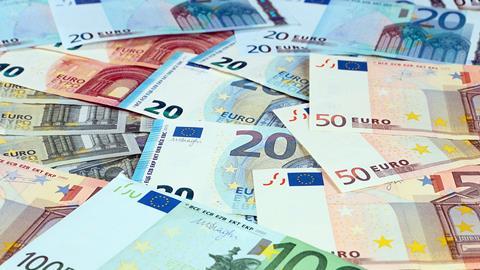Seven Dutch research consortia have secured funding through the NWO Gravitation programme. Molecular-oriented research is well represented in this round; members of KNCV (chemistry), NBV (biotechnology) and NVBMB (biochemistry and molecular biology) play a leading role in four of the selected consortia.
Since 2012, the Dutch Research Council (NWO) deploys the Gravitation-programme to support and stimulate long-term partnerships between leading scientists from different areas to develop innovative areas of scientific research. The total budget of the current Gravitation-round amounts to €160.5 million. Members of KNCV, NBV and/or NVBMB are involved in four of the awarded proposals:
FLOW
Main applicant: KNCV-, NBV- and NVBMB-member Ineke Braakman (Utrecht University)
Co-applicants: KNCV- and NVBMB-members Mireille Claessens (University of Twente) and Stefan Rüdiger (Utrecht University); KNCV-member Friedrich Förster (Utrecht University); NVBMB-member Alfred Vertegaal (Leiden University Medical Center); Mark Hipp (University Medical Center Groningen)
Health is not a given as it often is challenged by the body’s own proteins. To prevent harm, cells have a vast quality-control system in place that supports, corrects, or removes damaging proteins. Failure of this quality-control system results in many diseases including Alzheimer, Parkinson, cystic fibrosis, hemophilia, and some emphysemas. We aim to understand so much of the effects and machinery of the quality-control process that we can take a step towards preventing and curing diseases.
Institute for Chemical Neuroscience (iCNS)
Main applicant: Ingeborg Huitinga (University of Amsterdam)
Co-applicants: KNCV- en NVBMB-member Mario van der Stelt (Leiden University); Paul Lucassen (University of Amsterdam), Bart Eggen (UMC Groningen), Lot de Witte (Radboud University), Maarten Kole (Utrecht University/NIN)
The aim of iCNS is to elucidate the molecular changes relating to psychiatric symptoms, such as depression, anxiety and psychosis. In iCNS, neurobiologists, chemists, psychiatrists and data science experts work closely together on human brain tissue. Young scientists will be trained in combining chemistry, artificial intelligence and neurobiology. Their research will lead to a “brain atlas” of psychiatric symptoms, and to entirely new approaches to improve the diagnosis, prognosis and treatment of psychiatric illnesses.
ANION: Advanced Nano-electrochemistry Institute of the Netherlands
Main applicant: KNCV-member Marc Koper (Leiden University)
Co-applicants: KNCV-members Petra de Jongh (Utrecht University) and Moniek Tromp (University of Groningen); Huib Bakker (University of Amsterdam/AMOLF), Peter Bolhuis (University of Amsterdam), Serge Lemay (University of Twente)
A large-scale energy transition of society requires efficient electrochemical processes for generating, converting, and storing sustainable energy. Unfortunately, existing electrochemical processes have serious limitations and are inadequate to meet the grand challenges ahead. At present there is insufficient knowledge of the processes occurring in electrochemical systems at the smallest scale to fundamentally improve these processes. In this multidisciplinary fundamental research program, chemists and physicists lay the foundation for new efficient electrochemical technologies designed to dramatically reduce humanity’s carbon footprint.
GreenTE: Green Tissue Engineering
Main applicant: Dolf Weijers (Wageningen UR)
Co-applicants: KNCV-members Joris Sprakel (Wageningen UR) and Marleen Kamperman (University of Groningen); Leónie Bentsink (Wageningen UR), Gijs Wuite (VU Amsterdam), Kim Boutilier (Wageningen UR)
All living organisms are subject to the laws of physics, and are exposed to mechanical forces. These included stresses caused by neighboring cells, but also by pathogens that are trying to invade. The researchers will study how plant cells – with an internal pressure exceeding that in a champagne bottle – perceive mechanical forces, and how such forces control growth, development, and immunity. Armed with this knowledge, the consortium will develop new strategies for improving propagation and immunity in crops.
More on the Graviation programme and the awarded proposals













Nog geen opmerkingen